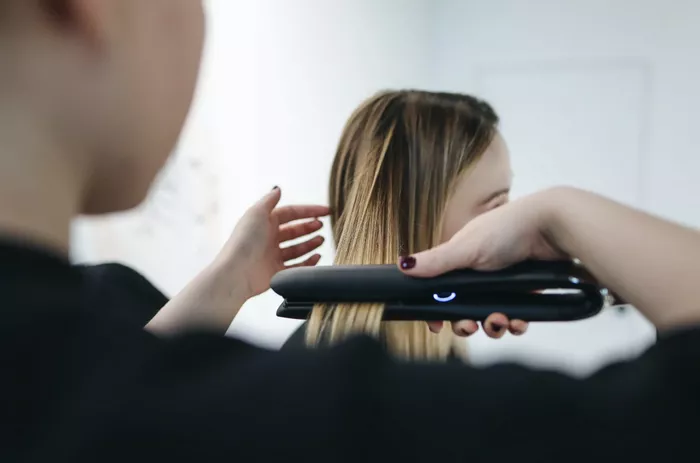Straightening a wig can transform its appearance, giving it a sleek and polished look. Whether your wig is synthetic or made from human hair, using a straightener requires careful attention to avoid damage. This comprehensive guide will walk you through the process of straightening a wig with a straightener, ensuring optimal results while maintaining the integrity of the wig.
Choosing the Right Wig Straightener
Identify the Type of Wig Material
Before you begin straightening your wig, it’s crucial to identify whether your wig is made of synthetic fibers or human hair. This distinction is important because synthetic wigs require lower heat settings, while human hair wigs can handle higher temperatures.
Select a High-Quality Straightener
Investing in a high-quality straightener with adjustable heat settings is essential. Look for straighteners with ceramic or tourmaline plates, as these materials distribute heat evenly and reduce the risk of damaging the wig.
Check the Heat Settings
For synthetic wigs, the ideal temperature is between 250°F and 300°F. For human hair wigs, you can use higher temperatures, up to 450°F. Always start with a lower setting and gradually increase if necessary, to avoid burning the fibers.
Preparing the Wig for Straightening
Clean the Wig Thoroughly
Ensure your wig is clean and free from any product buildup. Wash it using a gentle shampoo and conditioner specifically designed for wigs. Rinse thoroughly and allow it to air dry completely before straightening.
Detangle the Wig
Using a wide-tooth comb or a wig brush, gently detangle the wig starting from the tips and working your way up to the roots. This will prevent any snags or pulls during the straightening process.
Apply a Heat Protectant
Just like natural hair, wigs need protection from heat damage. Apply a heat protectant spray evenly throughout the wig. This will create a barrier between the wig fibers and the heat, reducing the risk of damage.
Straightening the Wig
Section the Wig
Divide the wig into manageable sections using clips. Working with smaller sections allows for more control and ensures that each strand is straightened evenly.
Begin Straightening
Starting with the bottom sections, clamp the straightener at the roots and slowly glide it down to the tips. Avoid lingering too long on one spot to prevent heat damage. For synthetic wigs, it’s crucial to keep the straightener moving to avoid melting the fibers.
Repeat as Needed
If necessary, repeat the straightening process on each section until the entire wig is straightened to your satisfaction. For stubborn curls or waves, you may need to go over certain sections more than once.
Final Touches
Once you’ve straightened the entire wig, allow it to cool completely. This will set the style and ensure it stays straight for a longer period. After cooling, gently comb through the wig to smooth out any remaining tangles.
See Also: How to Fix Fried Ends Without Cutting: Things You Need To Know
Post-Straightening Care
Store the Wig Properly
After straightening, store your wig on a wig stand to maintain its shape and prevent tangling. Cover it with a wig net or a silk scarf to protect it from dust and friction.
Regular Maintenance
Regular maintenance is key to keeping your wig looking its best. Avoid over-straightening to prevent wear and tear on the fibers. When not in use, store the wig in a cool, dry place away from direct sunlight.
Troubleshooting Common Issues
Dealing with Frizz
If your wig develops frizz after straightening, apply a small amount of wig serum or leave-in conditioner. This will help smooth the fibers and reduce frizz.
Fixing Heat Damage
If you notice any heat damage, such as melted or frayed fibers, trim the affected areas carefully. For extensive damage, consider seeking professional help or replacing the wig.
Restoring Shine
To restore the shine of your wig, use a wig-specific shine spray. Apply it sparingly to avoid making the wig look greasy.
Safety Tips
Avoid Excessive Heat
Always use the lowest effective heat setting to straighten your wig. Excessive heat can cause irreversible damage, especially to synthetic wigs.
Keep the Straightener Clean
Regularly clean the straightener plates to remove any residue that could transfer to the wig and cause damage.
Use the Right Tools
Only use tools and products specifically designed for wigs. Regular hair products and tools may not be suitable and could damage the wig fibers.
Conclusion
Straightening a wig with a straightener requires patience and care. By following these steps, you can achieve a sleek and polished look without compromising the integrity of your wig. Remember to choose the right straightener, prepare the wig properly, and use the correct techniques to ensure the best results. With regular maintenance and proper storage, your straightened wig will continue to look stunning and serve you well.
Straightening your wig can enhance its versatility and give you a fresh new look. Whether you’re preparing for a special occasion or simply want to change up your style, this guide provides all the information you need to straighten your wig safely and effectively.


